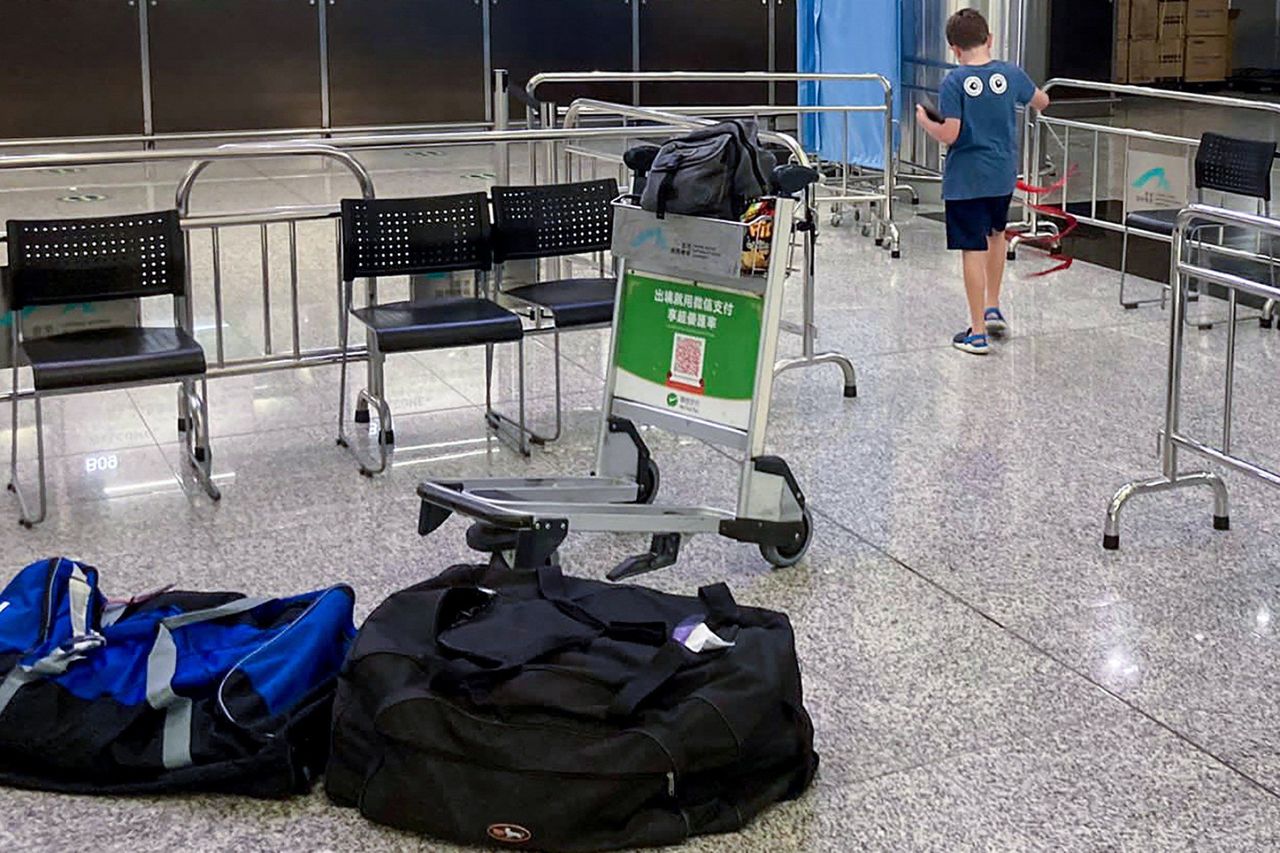Hong Kong News

‘Inhumane’ 13-hour Hong Kong airport ordeal for boy, 9, with autism
A father stranded in Hong Kong’s airport with his vulnerable autistic son for more than 13 hours said on Tuesday the city’s coronavirus quarantine regulations for people with disabilities were “inhumane” and should be ditched.
David Schaus said the delay happened because the family was not allowed to apply for permission for home quarantine for Alexander, nine, who also has attention deficit hyperactivity disorder, before they returned to the city from overseas.
Schaus, a US-born businessman and Hong Kong resident, explained that Alexander could become distressed and hurt himself if confined in a small and unfamiliar space such as a hotel room, but the present rules insisted that application for home quarantine on medical grounds could only be made after planes touched down in Hong Kong.
“If you’re a person with special needs, and you do not know if you can get that exemption or not, and you know you need it, that might prevent you from travelling, and now you’re really discriminating against that person with special needs,” Schaus said.
“If the quarantine does continue to last, then people with special needs need to get reasonable accommodation, or it’s just inhumane.”
Schaus was backed by experts and a community group, who said that the uncertainty about quarantine arrangements could deter people with disabilities from travel.
The ordeal for the family of four, who declined to reveal which country they had visited, arrived in Hong Kong on Monday afternoon at around 2pm.
Schaus’s wife and oldest son went to the quarantine hotel, but he said he told airport authorities he would wait for the decision on his application because he was concerned about the effect confinement in a hotel room would have on Alexander.
He said he spent hours sending emails to the Department of Health and called police to see if they would be able to help with the problem.
Schaus said health officials responded in an email about midnight – 10 hours after touchdown – that his application had been sent for evaluation.
But he said he decided to head to the quarantine hotel with Alexander at 3.30am on Tuesday to get some rest.
Schaus said he was not told until 9.30am that day that Alexander would be allowed to complete quarantine at home and the two were taken by ambulance at around noon to their home in Pok Fu Lam.
Schaus, who has lived in Hong Kong for 18 years, said he had written to the Department of Health at the start of the month to ask for a home exemption for Alexander.
He explained he had also sent several emails and included Alexander’s government-issued disability card, a floor plan of the family home and a letter from a doctor who said he was concerned that the child could self-harm if confined in enclosed and unfamiliar surroundings.
 Alex Schaus, nine, who has autism and attention deficit hyperactivity
disorder, waits at the airport for health department approval to
quarantine at home on medical grounds.
Alex Schaus, nine, who has autism and attention deficit hyperactivity
disorder, waits at the airport for health department approval to
quarantine at home on medical grounds.
But, in an email sent to Schaus on Monday and seen by the Post, health officials confirmed that they would not accept pre-arrival applications, as conditions could be changed at any time because of the volatile coronavirus situation.
It added that applicants were required to stay at their designated quarantine hotels while their applications were processed.
Stella Cheng, the chairwoman of the Hong Kong Occupational Therapy Association, said parents with special needs children would “think twice” before they went on overseas trips if they knew they could face quarantine problems when they returned.
Cheng agreed that families with children who had conditions such as autism would find hotel quarantine difficult because of the unfamiliar surroundings.
“It would be better if the government can allow people to apply for an exemption before they come back to Hong Kong, and waive the hotel quarantine arrangement if they can guarantee there will be home quarantine facilities available,” she said.
Wendy Huang Wenjie, a community organiser for the Society for Community Organisation, a human rights group that also helps the underprivileged, said the regulations lacked guidelines to deal with people’s “reasonable requirements, especially their health needs”.
“The Hong Kong government needs to consider people’s special needs, and have more flexibility to handle them,” she said.
The Department of Health’s website guidance said that exemptions from hotel quarantine would only be given in “very exceptional circumstances” and if there were “significant medical conditions”.
The department explained that the home environment would also have to suitable for quarantine and that if there were other household members already there, they would have to be willing to undergo isolation as well.
Dr Chuang Shuk-kwan, the head of the Centre for Health Protection’s communicable diseases branch, said: “If they have special requests, I understand our colleagues will consider them on a case-by-case basis.”
Hong Kong has more than 57,000 children with special educational needs.
These include learning difficulties, ADHD, autism spectrum disorders, speech and language impairment, intellectual disability, hearing impairment, physical disability, visual impairment and mental illness.
The Health Bureau has been contacted for comment.











